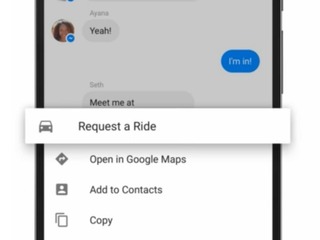Babson Diagnostics and Cynergy partner on consumer-initiated orders of its BetterWay blood test
BetterWay blood testing will launch in Texas later this year before rolling out nationally
Read more...
Editor's Note: Our annual Vator Splash Spring 2016 conference is around the corner on May 12, 2016 at the historic Scottish Rite Center in Oakland. Speakers include Nigel Eccles (CEO & Co-founder, FanDuel, Andy Dunn (Founder & CEO, Bonobos), Mitch Kapor (Founder, Kapor Center for Social Impact); Founders of NextDoor, Handy, TubeMogul; Investors from Khosla Ventures, Javelin Venture Partners, Kapor Capital, Greylock, DFJ, IDG, IVP and more! Join us! REGISTER HERE.
I think it's safe to say that Facebook's idea to take Messenger, and spin it off as its own app, has been one of the company's most successful ideas. The process of completely separating it from the main app started back in 2014, so it's actually a little surprising that it took this long for Twitter to try to copy the idea.
Twitter is currently discussing a move to make a standalone app out of its Direct Messaging service, according to a report from Re/Code.
On paper it makes sense, for a variety of reasons. First, Twitter has been struggling mightily, for a few years with growing its userbase. Perhaps it can help goose those number by giving users another way in. If someone were to download Twitter's messaging app, it stands to reason that they would likely download the main app as well.
Also, just look at how successful the idea to spin off Facebook Messenger has been.
Facebook made the decision to decouple Messenger back in 2014, making it so that users could only send messages by downloading a separate app. The decision has been a huge success. As of this year the app has 800 million users, and was the fastest growing app in 2015.
The company has also been growing the service through integrations, including adding transportation apps like Lyft and Uber, as well as music integration with Spotify.
Frankly, what company wouldn't want to try to repeat that kind of accomplishment? The only problem is that it ignores some fundemental realities for Twitter.
First, it ignores the fact that Facebook's mobile strategy has, for a long time, involved launching various apps, including reader app Paper, and its live streaming app Mentions. Not all of them have been successful, but creating a family of apps is part of Facebook's longterm plan. Twitter, on the other hand, has never had the same strategy.
Second, even before it started forcing users to download Messenger the app had still been growing extremely fast, having been the top growing app in two of the previous three years. In 2012 Messenger grew by a whopping 544 percent, and in 2014 it grew by 242 percent.
That gets to the biggest problem of all for Twitter: it's relatively small userbase. For the full year 2015, Twitter only had 320 million monthly active users, which is less than half of Messenger's current userbase.
There are a slew of other messaging apps out there for users to choose, including WhatsApp, which has 1 billion users. Twitter is late to this game, and it just doesn't have the kind of numbers that would allow it to compete against the established players. Imagine if they had done this a few years ago, though.
A stand-alone Twitter messaging app probably wouldn't be successful at this point. Still, I can't say I wouldn't love to see them try it.
VatorNews reached out to Twitter for confirmation of this report, but the company declined to comment.
(Image source: chocolatemoosey.com)
BetterWay blood testing will launch in Texas later this year before rolling out nationally
Read more...The round brings Livara's total funding to $27 million raised to date
Read more...Dream Sock is an over the county monitor offering live health readings and notifications for infants
Read more...



